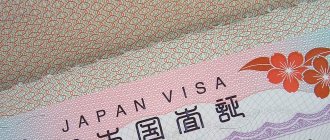What is karoshi?
Karoshi is death caused by diseases resulting from overwork and stress. Diseases can be different - a person can suddenly die from a brain hemorrhage or heart disease, or he has a severe asthma attack from which he dies, or he develops depression and he commits suicide. The word karoshi began to be used by doctors in the second half of the 70s, and in the second half of the 80s, about thirty years ago, it began to be widely used in Japanese society. The number of deaths officially recognized by the Japanese Ministry of Health, Labor and Welfare as deaths from excessive work (karoshi) is about 200 per year, but this figure is only the tip of the iceberg, and besides this, there are many people who saved their lives but are forced to languish difficult existence as patients with serious illnesses.
過労死 Karoshi, or how the Japanese work themselves to death
Imagine that you have honestly worked your hours at the office and with a clear conscience are going to go home in anticipation of finally finishing watching your favorite TV series or going somewhere in the evening. It would seem, so what? After all, you have honestly worked your working day and have the right to manage your free time as you please. Yes, indeed, this is true, but only if you are not Japanese.
Surely everyone has heard that the Japanese are a hardworking nation. This stereotype did not appear out of nowhere. We know from history that after World War II, the Japanese managed to completely restore their country and economy in just ten years. Already in 1985, Japan came in second place in terms of GDP, which was half that of the US. For a country that suffered from the bombing of peaceful cities and at the beginning of the century was considered almost a semi-colony by the Western powers, this was an unprecedented success.
The Japanese economy was in second place in the world for forty years, and only in 2010 it had to give way to China. And now Japan is trying with all its might to catch up. If you think about it, what efforts are required to achieve this? The Japanese are literally ready to work day and night for their company. In addition, they are very afraid of losing their job, but not only because of money, but also because they are inveterate workaholics.
Extracurricular work in Japanese
The Japanese work their butts off, overworking 100 hours a month. As a result of these revisions, the official term “karoshi” arose in the Japanese language.
過労死 is a Japanese term meaning death by overwork. Death can be caused by diseases caused by excessive work and stress. Different diseases can occur.
A person may die suddenly from a cerebral hemorrhage, a heart attack, or an asthmatic attack, or they may develop depression from overwork, causing the person to commit suicide.
As an example, let’s look at how much time the average worker from different countries spends at work.
Official working time statistics by country
According to the Organization for Economic Cooperation and Development, the average Japanese officially works 1,713 hours a year. Compared to other countries, these are far from the highest working hours. It would seem that it is possible to debunk a popular myth, but... The fact is that the diagram does not correspond to reality at all.
It turns out that the Japanese works more than two thousand hours a year and it’s all about overtime. But what about the official data? In fact, it is not so simple, because we are talking about Japanese work culture and corporate ethics.
“In Japan, people always work after work hours. Recycling has practically become part of the workday, says Koji Morioka, a professor at Kansai University who is on a committee of experts developing karoshi control methods for the government. “Now no one is forcing anyone to work overtime, but the workers themselves believe that they are obliged to do it.”
What is zan gyou 残業?
In Japanese society, there is such a thing as zan gyou 残業 overtime or after-hours. Let's try to explain what it is.
Let’s say that according to labor law, a Japanese worker works from 9:00 am to 6:00 pm. The boss asks him to stay a little late and do urgent work, so the employee leaves at 21:00, that is, three hours later than the official time. The company can also ask its employee to go to work on a day off, this will also be zan gyou.
The character of the Russian writer Cheburashka, popular in Japan, with special sadism, introduces the Japanese to the peculiarities of the Russian work ethic. The order of the pictures is from right to left.
The difference between Japanese after-hours and those accepted in any company, in any country in the world, is that they are not paid and there can be a lot of them. When hiring, the Japanese employer expects such hours, and the applicant, when applying, agrees with the unspoken rule.
Samurai do not leave the battlefield
There are some peculiarities in Japanese work culture. It is considered extremely impolite to leave work before your boss and colleagues. For the same reason, it is considered bad form to take vacations, which is why the Japanese work without vacations.
Employees treat their company like family. The company, in turn, really takes care of its employee. Not only provides him with employment and pays taxes for him.
On the New Year and the national holiday Obon (お盆), the employee is entitled to bonuses in the form of three days off. If an employee has a first child, the company will issue a bonus. The best employees are entitled to a company car and an apartment.
Therefore, for these reasons, the Japanese are very grateful to their company and consider it their family. Besides, if you think about it, an employee of any company really spends more time at work than with his real family.
Another feature is that workers are required to go out and have a drink with their colleagues after work, even if someone is tired or sick, refusal is unacceptable in Japanese society. Why can't you refuse?
The Japanese culture is such that the values of collectivism are important to them. Japanese society is also very hierarchical, so alcohol is the only thing that allows them to communicate with each other in an informal setting.
That's why the Japanese treat their recycling this way. It is not surprising that these phenomena have a tragic consequence - karoshchi.
Government and public in the fight against karoshchi
Japan's Ministry of Health, Labor and Welfare has set up a free telephone consultation to prevent karoshi. There are sites for psychological support for citizens who find themselves in difficult situations related to violence or overwork at work. On the 110 website, desperate people of various professions and their relatives leave anonymous messages.
They complain about companies that, despite the law, force them to work overtime and go to work on weekends.
“My daughter is a high school teacher who leaves for work at 6:30 a.m. every day and returns exhausted at 10 p.m.”
“I work for a construction company. I come to work at 6:00. The daily report notes that my workday begins at 8:00.”
“I’m 20 years old, my boss hit me because I wanted to quit my job earlier. I was sent on leave, but the attacking boss continues to work.”
This, of course, is a single percentage of Japanese who dared to write to the support hotline. The Japanese are very concerned that the law is not working and are asking the state to take radical measures. The government is trying to take some steps and introduce new laws that, in their opinion, should solve the problem, but this is not very helpful yet. To some extent, the heads of Japanese corporations themselves began to meet the wishes of the government.
Thus, Japanese billionaire Yusaku Maezawa (the same one who was going to fly to the Moon’s orbit in Musk’s rocket) on his own initiative introduced a 6-hour working day for his employees.
Maezawa still looks too shocking for Japanese society, but water wears away stones.
Take a nap at work? Easily
For all the cruelty of Japanese rules, there is one relatively humane example among them. This is also a purely Japanese phenomenon and is associated with the fight against overwork of workers. In Japanese this is called i nemuri (presence, sleep).
No, here we are not talking about those clerks, tormented by chronic lack of sleep, who stagger, hold on to the handrails in the subway and sleep. These sleeping white-collar workers are a distinct element of the Tokyo, Osaka or other Japanese cityscape. But we are talking about something else.
Sleeping on the job is something that may come as a shock to Westerners. If in Russia a businessman falls asleep in front of his computer, or a schoolboy falls asleep in class, this will cause censure. In any non-Japanese society, a person who falls asleep will be reprimanded or reprimanded. However, in the Land of the Rising Sun this is a small compensation for overtime and colleagues will treat such a dream with all respect.
From the Japanese point of view, such a person demonstrates diligence, self-sacrifice and responsibility. With all his appearance, the Japanese will show that, despite the fact that he does not feel well or is very sleepy, he still came to work and is ready to turn on at any time when the need arises.
Are the samurai to blame?
Why did the Japanese turn out to be such disciplined workers? The answer seems obvious. For about seven centuries, the rule was carried out by samurai, a military class with its own ethics, which requires unconditional obedience to all rules. From history we know that only at the end of the 19th century the system changed and there were no more samurai. Very little time has passed since that period.
Most likely, the psychology of obedience to rules, which was the main thing for a warrior, still holds its position deep in Japanese culture. And in the economic success and success of company management, of course, some kind of samurai past is reflected; the Japanese strive to bring everything to an ideal state, only then can they be calm.
Surely the koroshi statistics can be associated with the centuries-old tradition of “honorable suicides.” In medieval Japan, harakiri was common among samurai, which was committed after defeat in battle, as punishment, as a sign of loyalty to ideals or a master. This is a cultural trait associated with the desire to look decent in the eyes of others at any cost.
Zhanna VEDERNIKOVA
History of Karoshi
The history of karoshi began before World War II. In the 1910s and 1920s, women workers at a silk mill located near Lake Suva, one after another, drowned themselves in the lake to escape their backbreaking work. They were forced to work 12-14 hours a day, and from excessive fatigue they took their own lives. A newspaper article has been preserved, according to which 47 female workers drowned in six months in 1927. Seeing such a tragic situation, educated people of that time organized a volunteer anti-suicide group “Mother’s House” (Haha-no-ie), installed signs near the lake, and made rounds to prevent people from committing suicide.
After defeat in World War II, a new Japanese Constitution was published and on its basis a labor standards law was developed, which established an eight-hour working day. However, this principle has actually never taken root anywhere. As a result, post-war Japan developed a management system based on long working hours, with its help it was possible to achieve rapid economic growth, and Japan became one of the most economically developed countries in the world.
There are two ways to make your workday long.
The first is the illegal method of unpaid overtime. In this case, it does not matter how much a person works - overtime hours are not recorded, and if he works 12 hours, then formally it is still considered that he has an eight-hour working day.
The second method is based on an agreement between employees and management and is popularly called saburoku, from san and roku, 3 and 6, since an agreement on overtime work of more than eight hours a day is concluded on the basis of Article 36 of the Labor Standards Law, which makes it possible to legally extend the working day , and under current legislation such an agreement allows you to extend working hours with virtually no restrictions.
The practice of extending working time by these methods to 100 hours a month or more has taken root in production.
After going through a period of rapid economic growth, Japan became one of the most economically developed countries in the 1980s, and Japanese management was admired throughout the world. However, in the second half of the 80s, during the “bubble” economy, another side of Japan’s “economic greatness” appeared - people died one after another, in particular from strokes and heart attacks. Then, in 1988, lawyers, doctors and other specialists joined forces and organized a consultation service for citizens, “Number 110 for Karoshi” (Karoshi hyakuto ban), and they received a flood of relatives of the deceased seeking advice.
In the 1990s, the bubble economy burst and a protracted period of stagnation began. In these difficult economic times, companies have fallen on hard times, and the goal is no longer development, but survival. Companies' personnel policies have become stricter, and stress from uncertainty about whether they will be able to keep their jobs has become commonplace. They continued to work overtime for the survival of companies, overwork and stress led to depression in an increasing number of workers, and the number of suicides increased sharply.
Karoshi has had four features since the 1990s: rising suicide rates; among the causes of suicide, in addition to long working hours, bullying from superiors is more common; an increase in the number of deaths of young people aged 20 to 40 years; spreading karoshi among working women.
The death of Takahashi Matsuri, who worked in and committed suicide in December 2015, received wide publicity, and in September 2016 it was declared an industrial accident by the Ministry of Health, Labor and Welfare. He is a clear example of all four characteristics - perhaps partly why her death was such a shock to Japanese society.
Overtime culture
Officials say there are hundreds of cases of karoshi every year, including heart attacks, strokes and suicides. But Posse experts believe the real figure is much higher.
Nearly a quarter of Japanese companies have employees who work more than 80 hours of overtime per month, often unpaid, according to a recently published study. And 12% have employees who work more than 100 hours a month.
These numbers are very important: 80 hours of overtime per month is considered the threshold above which you become more likely to die.
Nearly a quarter of Japanese companies have employees who work more than 80 hours of overtime per month.
The Japanese government is increasingly under pressure to act, but the challenge is to break a long-standing work culture in which it is inconvenient to leave work before colleagues or the boss.
Earlier this year the government introduced so-called Bonus Fridays, encouraging firms to let their staff go early at 3pm on the last Friday of each month. Officials also want Japanese workers to get more rest.
Workers are entitled to 20 days of annual leave, but currently around 35% do not take it.
Social context of karoshi
To understand the social context of karoshi, the following three factors must be considered.
Firstly, after the Meiji restoration (1868), in order not to become dependent on Western countries, under the slogans of creating a rich country and a strong army, increasing production and developing industry, the Japanese worked long hours and carried out the industrial revolution. After World War II, recovering from the shock of defeat, they sought to economically catch up and surpass Western countries, built long working hours into the management system and achieved economic growth. Thus, long working hours became common in the 150 years following the Meiji Restoration. Therefore, changing this Japanese long-hour system will be a reform that will go down in history and will require a lot of courage and determination from both managers and politicians.
Secondly, in Japan, even under the new post-war Constitution, the concept of human rights was unable to gain a foothold in production. There is a popular phrase: “The Constitution goes no further than the company gates.” The ideas of the Constitution have not penetrated into these specifically Japanese communities, such as companies here, where the profit of the company is most important, and the rights of the individual are not used to being respected. The influence of trade unions, both quantitatively and qualitatively, is incapable of achieving improvement in working conditions.
Thirdly, Japan is a very “convenient” country on a global scale, providing consumers and partners with extensive services, but this is achieved through long working hours of service workers. For example, there are many food service and retail businesses that operate 24 hours a day and require hard work from workers even late into the night to keep them running. Courier mail delivers items from morning to late evening, but to do this, drivers must work overtime. In fact, many workers in these restaurants, stores and postal companies die from overwork. The time has come to take care not so much of your “convenience” as of the life and health of your workers.
Karoshi - typical cases
Flickr/Emil Erlandsson
The first case of karoshi was officially recorded in 1969, when a 29-year-old delivery worker at Japan's largest newspaper died of a stroke after working several shifts. In the 1980s, during the Japanese financial crisis, there were numerous cases of karoshi among senior Japanese managers.
A typical case can be described by the following example. Kenji Hamada (42) was an employee of a security company in Tokyo. His typical work week consisted of daily 15-hour shifts and a four-hour commute. One day he was found at his workplace, lying face down on the table. At first everyone thought he was just sleeping, but after a few hours it became clear that he was dead. Cause of death: heart attack.1
Another example. Miwa Sado (31), an NHK journalist who worked 159 overtime hours a month with only two days off, died of acute heart failure caused by karoshi.2
Here is an example of suicide associated with work stress and overwork. Matsuri Takahashi (24) worked over 100 hours a month. Shortly before committing suicide, she wrote on the social network “I want to die” and “I am physically and mentally destroyed.” Some time later she killed herself. This is far from a unique case. In Japan, approximately 2,000 such suicides are recorded per year.2








